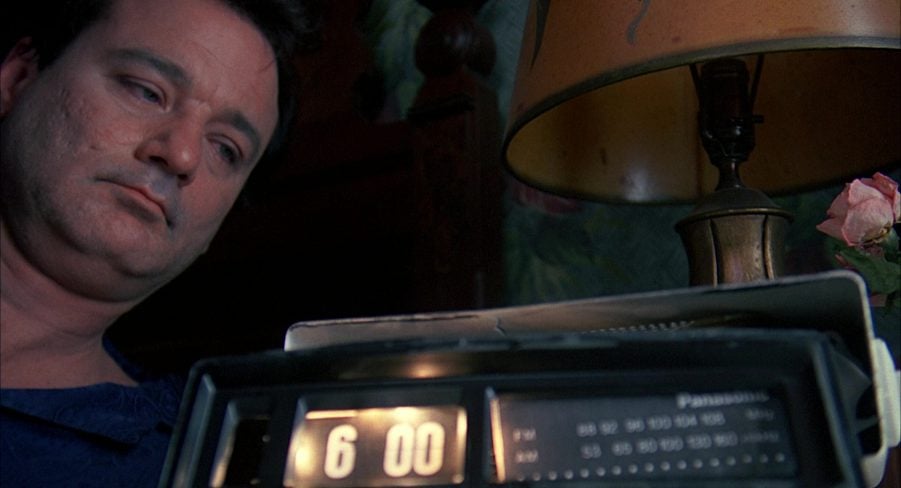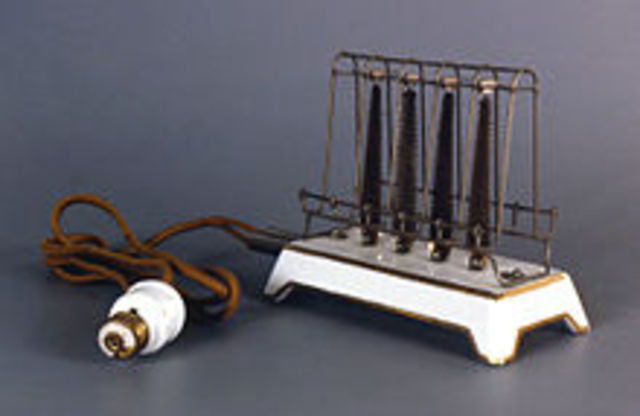deleted by creator
Bread, bath, beyond
A good time for a PSA from your friendly neighborhood electrician: make sure you have working GFCI protection in all bathrooms and kitchens to prevent unwanted tickle time
And also wanted tickle time
Btw thanks European regulation for not letting me die, its really fucking great
Shouldn’t that be standard everywhere? My flats here in Germany all had one central switch for that wired before the actual circuit breakers so that any outlet should be protected.
Is there a reason to only put that on select outlets?
It depends honestly. Here in the states, we GFCI kitchens, bathrooms, laundries, garages, crawl spaces underneath houses, and exteriors, basically anywhere it could be reasonably expected to come in contact with water or an unexpected grounding/earth source. From there, you can either do a GFCI breaker or receptacle. Both will protect everything downstream from the device, but the choice comes down to convenience of operation. I’ll generally do GFCI breakers for dishwasher, disposals, refrigerators, etc, just so that if the GFCI trips you can reset it in the panel so you don’t have to pull the equipment out to get to it, but I’ll do kitchen and bathroom counter convenience plugs as a GFCI receptacle (and daisychain all downstream kitchen receptacles from the GFCI receptacle) to be able to reset it right there at the point of use.
You could in theory GFCI protect an entire house/flat, but it likely comes down to cost saving and avoiding nuisance trips. Motors as they age tend to leak current and trip GFCIs, and any number of delicate electronics can be finicky, so that’s typically why we only use them in wet locations.
We’re Americans, we do things illogically here
In seriousness though, I’m not really sure. I would guess, like most things, money is the answer. The codebook we electricians use specifies what needs to be GFCI. You can always go above that, and make everything GFCI, but you don’t have to. If you’re bidding a job, you can estimate higher to have GFCI protected everything, but the customer is almost always going to go for the cheaper price, so why bother?
I am an electrician, but this is mostly my speculation and me talking out of my ass so uh… take it with a grain of salt.
Are not most other outlets required to be afci?
- Gfci protects “wet” areas where you might accidentally short yourself to ground, to save your life
- afci protects against arcs in the circuit, such as cut insulation, or a wire getting hit by a nail, generally to prevent a fire
Yes, kitchens, family rooms, dining rooms living rooms, parlors, libraries, dens, bedrooms, sunrooms, recreation rooms, closets, halways, laundry areas, and “similar areas” all require AFCI protection for homes. A bathroom would be GFCI protected, but does not have to be AFCI protected. A kitchen will be both. A hallway will be AFCI protected, but does not have to be GFCI protected.
Edit: should also clarify that this is according to the most recent version of the codebook, 2023. So this list only applies to brand new homes in areas where the 2023 version has been adopted. It’s likely it’s the same or similar for previous iterations, but I’d have to look back through a lot of versions of the codebook to see so uh… eh
American homes have a master circuit breaker (or fuse) which protects the entire house, and then individual circuit breakers for several circuits throughout the house, the exact configuration depends on the home, the era it was wired, etc. These only look at current. An American household 15 amp circuit breaker will happily electrocute a human if he only draws 10 amps. It doesn’t care if the electricity is completing the circuit through ground, it’s only job is to keep the wires in your walls from overheating and starting a fire.
Ground fault circuit interruptors (GFCIs) detect when current is completing the circuit through ground instead of neutral, which is what happens when you drop the proverbial toaster in the bathtub. Fresh water is an insulator but salty, soapy or acidic water is a conductor, and will conduct electricity into the pipes of the house, which are often used as the electrical system’s ground. GFCIs are often installed in places where one might encounter the outdoors or plumbing, aka when there’s a significant risk of a short to ground. A typical American duplex outlet costs a buck or two, a GFCI outlet costs upwards of $10, it’s expensive to install a whole house with GFCIs.
If I’m not mistaken, distilled water is an insulator, but tap water is a rather good conductor.
Exactly. It’s also completely unnecessary since the only places where you need GFCI protection is in places like you’ve mentioned, when there’s a significant risk of completing the circuit to ground.
Most of the time, an issue will flip a breaker before it causes damage, GFCI is just for extra protection.
Cheap billion dollar companies
Or, you know, just keep the toaster away from the bathtub/sinks?
Hair dryers have killed people too, which are much more likely to be found in a bathroom. It’s why they all have GFCIs in their plugs. I’ve also heard tell of a girl who was electrocuted in the bath by her phone charger. The USB cord won’t do it; the 5V USB puts out can’t hurt you. But if the charging brick and 110V wall power cord you’ve plugged it into falls into the water with you you’re gonna do the 15 amp dance.
It really is to save those that aren’t smarter than your average Bear from themselves. Logic would dictate that, yes, keep electronics or electrical appliances away from water, but too many people don’t connect the dots. Also too, accidents happen to the best of us.
Idk, I don’t think I’ve ever had a toaster anywhere near a bathtub. That would be one crazy accident…
Make sure it is working but then ideally try to behave as if it wasn’t just in case.
Remove the bread, add aspirin and razor blades. If you’re going to make a spectacle, make a spectacle.
Got to add a Sylvia Plath novel and a handle of alcohol.
I did once walk into a Wal Mart and bought a power drill, some road flares and a box of condoms. These were independent purchases but I just happened to need or want to buy all three that day. My only comment to the cashier was “This is gonna be awesome!”
Also ammonia and bleach.
This isn’t as dangerous as everyone describes. Painful. But not necessarily life threatening.
Extension cord for the toaster. So you can plug it in from the other room, or can substituted as a noose.
As a former cashier, I assure you, we don’t give a shit lol
Now I need to watch that movie again…
…and again
🎶 Then put your little hand in mine
There ain’t no hill or mountain we can’t climb 🎶
Remove the bread, add a rope instead
Or an extension cord
A male to male one, to be exact
Then there’s no reason to have the toaster…
It’s the backup plan
What, make some toast if the breaker flips?
Add a bottle of bleach. And a bottle of ammonia.
A club size pack of sleeping pills.
A refill pack of exacto blades.
And 2 bottles of vodka.
Reminds me of when me and a buddy were making rum in my apartment.
An entire cart full of molasses and brown sugar.
Clerk just looked and asked “doing a lot of baking?”
Yep. Baking.
Did it work?
The shopping or the rum?
Both worked wonderfully.
Made some white rum. (Nothing to it)
Some dark rum. (Added Torched Oak™ in bottle - we developed a neat technique to speed up the barrel aging without barrels)
Some spiced rum. (All the things)
Some over proof rum. (98%abv straight off the coil)
So baby hold me closer in the bathtub with a toaster
Why is a toaster the small electrical appliance of choice for that kind of thing? Good voltage/size ratio?
In ye olde times, a toaster was basically the wire out of the wall, past the bread and back into the wall. It’s the most amount of exposed wire you can get

Source… timetoast.com
Exposed elements probably helps
It’s fuckable
Fun fact a toaster in water probably won’t kill you, I mean it could obviously but it’s more likely that the electricity goes straight to the ground within the toaster, and slowly heat up the water, I wouldn’t try it but interesting nonetheless.
It would flip the circuit breaker.
A GFCI, yes, but regular circuit breaker won’t stop it from killing you, it’s primarily there to keep the house wiring from melting and burning down the house :) You just need 6 milliamps across the heart to f you over.
Yeah. Every country seems to have a different term for them (FI-Schutz hier) so i counted them as circuit breaker, because they break the circuit.
They’ve been code in the US since 1975, yet I’ve been in a surprising number of bathrooms from houses in the '80s that did not have GFCI protection. We really didn’t start seeing a lot of GFCI circuit breakers here until the 2000s before then it was all just single protected outlets
Mythbusters tested it https://www.imdb.com/title/tt0768493/
If your drain is grounded, it can.
This is what I had in mind: https://youtu.be/1RBwoUbvxx0?si=nbB6QCWywreHJdGF …may not be an actual toaster, but pretty damn close
“Good thinking”
The cashier will keep your secret safe
Good Thinking
It’s way less alarming if you explain that you won’t actually eat the bread.









